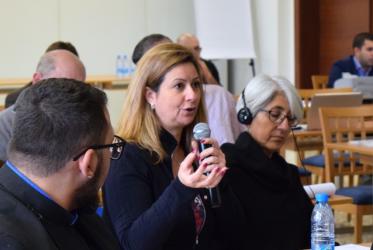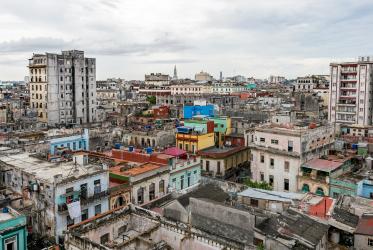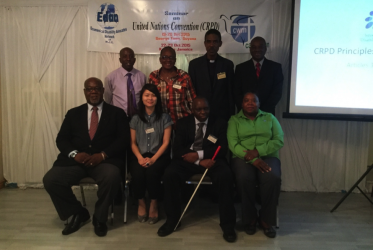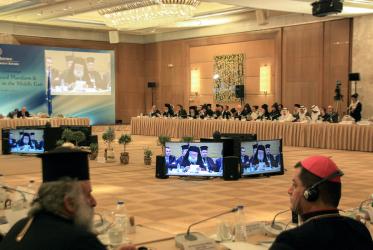Displaying 41 - 60 of 84
The child in the manger and the war in Syria
22 December 2016
Strong bridges needed more than ever
21 December 2016
Churches’ diaconal action in the Middle East analyzed
01 December 2016
WCC hails historic visit of US leader to Cuba
23 March 2016
Fleeing from – rather than to – a place
10 February 2016
Common prayer in Geneva responds to acts of violence
16 November 2015
WCC strongly condemned terror attacks
14 November 2015
Beirut bombings stir churches’ and WCC condemnations
13 November 2015
International conference addresses challenges in the Middle East
22 October 2015









